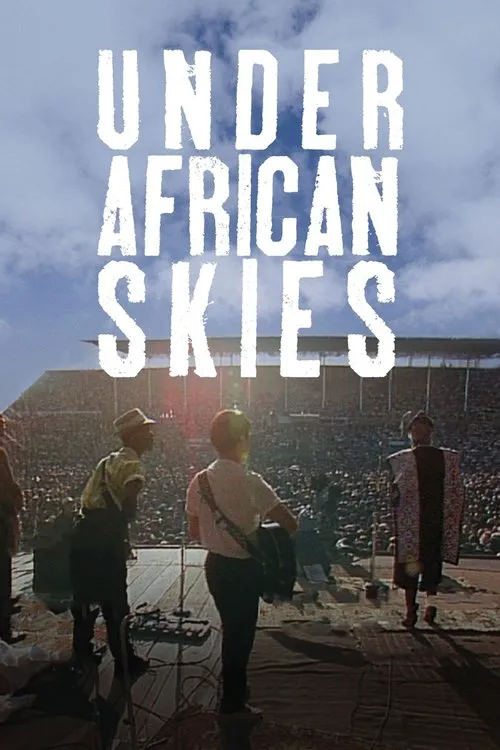Paul Simon: Under African Skies

Plot
Paul Simon: Under African Skies, a documentary film directed by Joe Berlinger, offers an in-depth look at the making of Paul Simon's 1986 album Graceland. The film explores the impact of Simon's decision to record the album in South Africa, despite the UN cultural boycott designed to end the Apartheid regime. Through a series of interviews with Simon and other notable figures, including Quincy Jones, Peter Gabriel, David Byrne, Harry Belafonte, and Paul McCartney, the film sheds light on the controversy surrounding the album and its influence on the music industry. The film begins with a brief introduction to the making of Graceland, which marked a significant departure from Simon's previous work. The album, released in 1986, was a fusion of American folk, rock, and African rhythms, featuring collaborations with local South African musicians. The album's success was swift and overwhelming, spawning hits such as "I Know What I Know" and "You Can Call Me Al." However, the album's impact on the music industry and politics was far more complex, and it marked the beginning of a heated debate about the role of music in politics. Simon, a renowned musician and activist, had long been involved in various social and political causes, including the anti-Apartheid movement. However, his decision to record Graceland in South Africa was criticized by many, including some members of the anti-Apartheid movement, who felt that Simon was undermining the efforts of those fighting to end the regime. The UN cultural boycott of South Africa, which had been in place since 1963, aimed to pressure the South African government to dismantle the Apartheid regime by banning cultural collaborations with the country. Despite the backlash, Simon maintained that he had done his research and was genuinely attempting to help the South African people by bringing international attention to the country's music scene. He argued that the apartheid regime was already crumbling, and his album was an attempt to bridge the cultural divide between black and white South Africans. Simon also pointed out that he had consulted with local musicians and had taken steps to ensure that the album would bring economic benefits to the artists involved. Quincy Jones, a respected producer and musician, provides valuable insight into the making of Graceland, describing the experience of recording with South African musicians as "a magical time" that allowed for the creation of something truly innovative and groundbreaking. Jones also acknowledges the controversy surrounding the album, but maintains that Simon's intentions were pure and that the album had a profound impact on the music industry. Peter Gabriel, another prominent musician and longtime friend of Simon's, reflects on the impact of Graceland on the music industry, describing it as a "watershed moment" that paved the way for future collaborations between artists from different parts of the world. Gabriel also acknowledges the controversy surrounding the album, but emphasizes that Simon's actions were a genuine attempt to promote cross-cultural understanding. David Byrne, the lead singer of Talking Heads, offers a more nuanced perspective on the controversy surrounding Graceland, noting that while Simon's decision to record the album was undoubtedly complex, it was also an expression of his desire to challenge the status quo and push boundaries. Byrne also highlights the irony of Simon being criticized for breaking the UN cultural boycott, while being lauded for his support of the anti-Apartheid movement. The film also features an interview with Harry Belafonte, a long-time advocate for civil rights and anti-Apartheid activism. Belafonte, who had been a vocal supporter of the cultural boycott, expresses his disappointment with Simon's decision to record Graceland in South Africa, but also acknowledges the album's impact on the music industry and its ability to bring international attention to the plight of the South African people. The film concludes with a reunion concert featuring many of the artists who had been involved in the making of Graceland, including Simon, Jones, Gabriel, Byrne, and Belafonte, among others. The concert, held in Durban, South Africa, marked the 25th anniversary of the album's release and was a testament to the enduring power of music to bring people together. Throughout the film, Berlinger's direction shines brightly, weaving together a comprehensive narrative that explores the complexities and controversies surrounding Graceland. The film is a must-see for fans of Paul Simon and Graceland, but it also offers something far more significant: a nuanced examination of the role of music in politics and the complexities of cultural collaboration in the face of conflict and adversity.
Reviews
Recommendations




